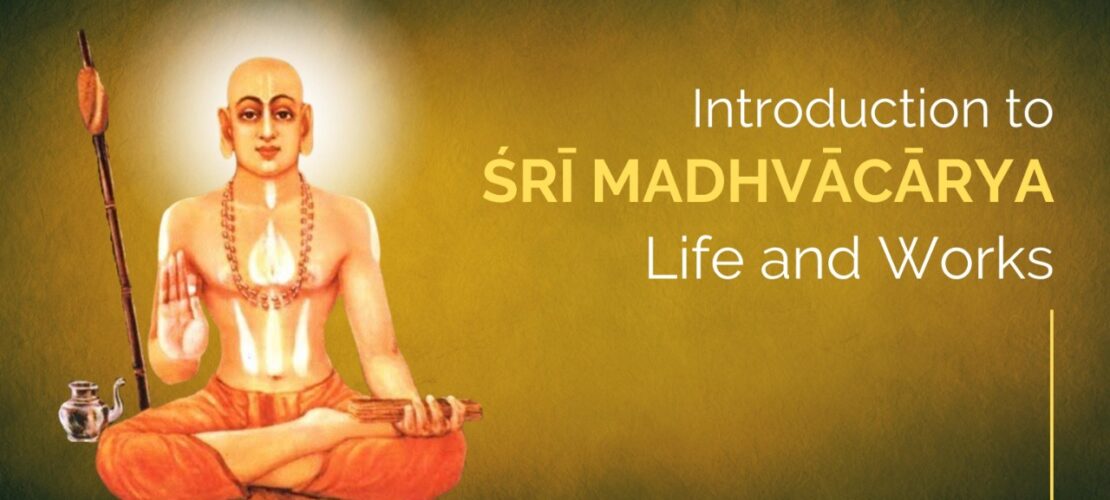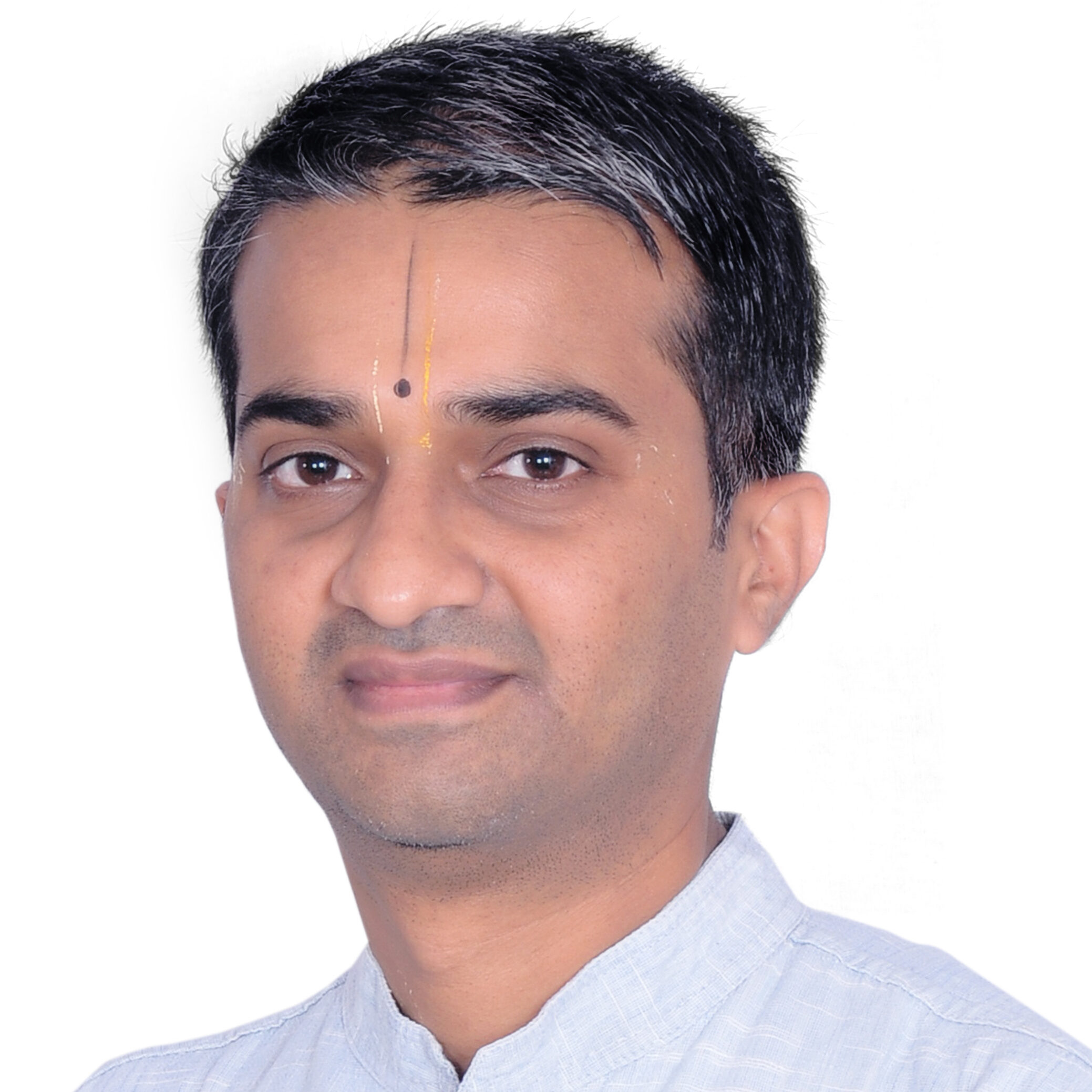
Introduction to Śrī Madhvācārya Life and Works
Presenting another offering under our “Enlightened Masters” series.
This Indica Course is a basic introduction to the life and works of Śrī Madhvācārya, the founder of Dvaita School of Vedānta.
It shall cover some of the important events in his life, provide the context in which his works were composed and summarise the fundamental tenets of his teachings.
Faculty
22 August 2022 - 12 December 2022
7:00 PM -8:00 PM IST
Every Monday (except 24th October 2022)
Introduction
Śrī Madhvācārya, the founder of Dvaita School of Vedānta, is one of the three popular Ācāryas who established their own Schools of Vedānta; Sri Śaṅkarācārya, the founder of Advaita School, and Sri Rāmāmujācārya the founder of Viśiṣṭādvaita, being the other two.
Born in coastal Karnataka, in the 44th century Kali era (13th century CE), he became an ascetic at a very early age with a life mission to uncover the purport of Vedantic texts with due emphasis to our experiential knowledge and rigorous logic. His teaching of Vedantic realism is a highly useful framework to understand the meaning of life and its purpose in a convincing way.
His works collectively called Sarvamūla Granthas are unique in many ways; notably for their wide range and for reconciling the entire corpus of Vedic texts. His life-story provides glimpses of his divine personality that add an additional layer of legitimacy to his teachings.
This course is a basic introduction to his life and works.
Objectives
- Narrate the important events in the life of Śrī Madhvācārya.
- Understand how some those events led to the compositions of different works.
- Summarise his works and identify their primary teachings.
Expected Outcomes
- Appreciate Śrī Madhvācārya’s approach of reconciling the entire gamut of Hindu texts.
- Understand Śrī Madhvācārya’s insights on what it means to lead a Dharmic life.
Course Outline
- Life story of Śrī Madhvācārya
- Factual details, extraordinary stories and their cues
- Stories and contexts in the creation of different works
- Bhārata-tīrtha-yātrā by Śrī Madhvācārya and the events associated with them
- Disciples, Mutts and Legacy of Śrī Madhvācārya
- An introduction to his works and their summaries:
- Śrī Madhvācārya’s approach of understanding Vedic and Vedantic texts and traditions, including Mahābhārata and Purāṇas
- Śrī Madhvācārya’s interpretation of “Mahāvākyas”
- The nine popular tenets of the philosophy of Śrī Madhvācārya
- Some unique teachings of Śrī Madhvācārya such as positions of Devatās, approach of reconciling Karma, Jñāna, Yoga and Bhakti, application of first principles in seeking Truth, multi-layered meanings of words and methods to synchronise experience, logic and texts
- Śrī Madhvācārya and Haridāsa Bhakti movement
- Śrī Madhvācārya’s life and works and the meaning of a Dhārmic life
Assessment
Quizzes for practice and retention; and a reflective essay as a take-away.
Reading List
- Prabhanjacharya, V. Life and Works of Śrī Madhvācārya. Sri Vyasamadhwa Samshodhana Pratishthana. 2004.
- Sharma, BNK. History of Dvaita School of Vedanta and Its Literature: From the Earliest Beginnings to Your Own Times. Motilal Banarsidass, 2008.
- Sharma, BNK. Philosophy of Sri Madhavacarya. Motilal Banarsidass, 2014.
- Iyer. G.V. Madhavacarya [Film]. Ananthalakshmi Films. 1986.

